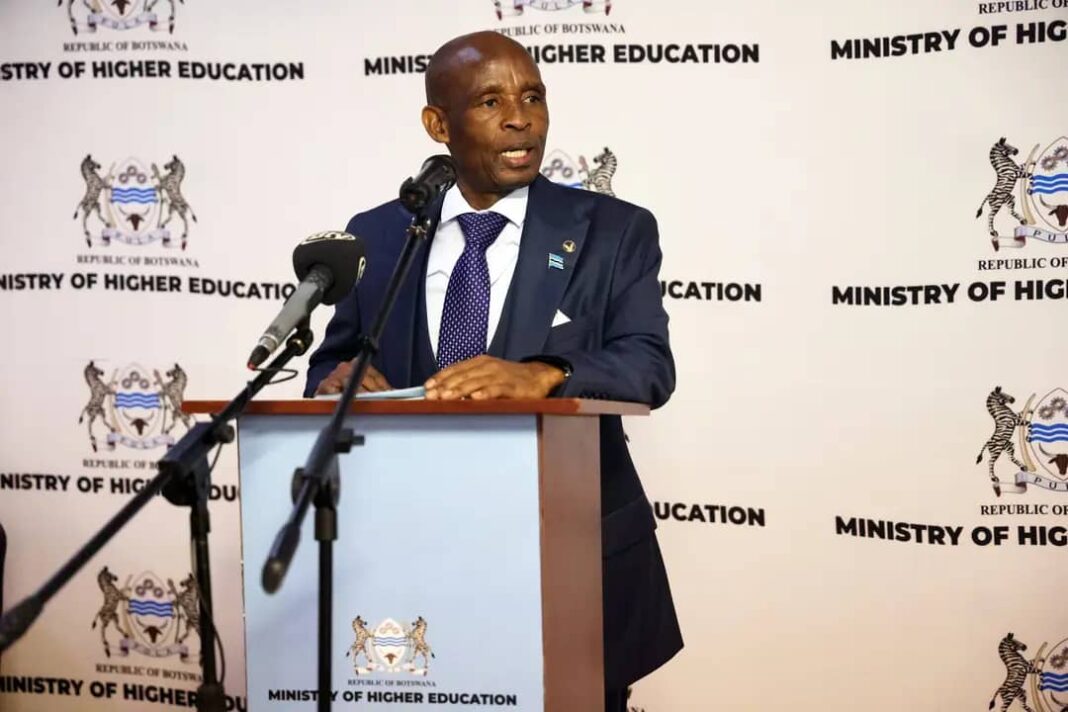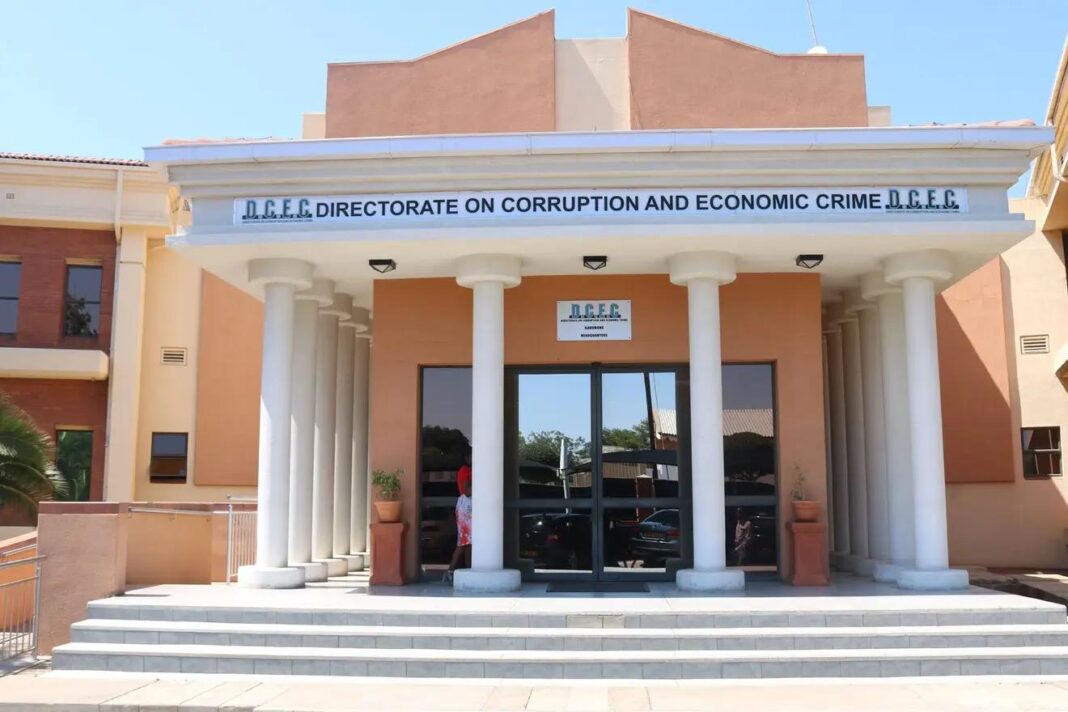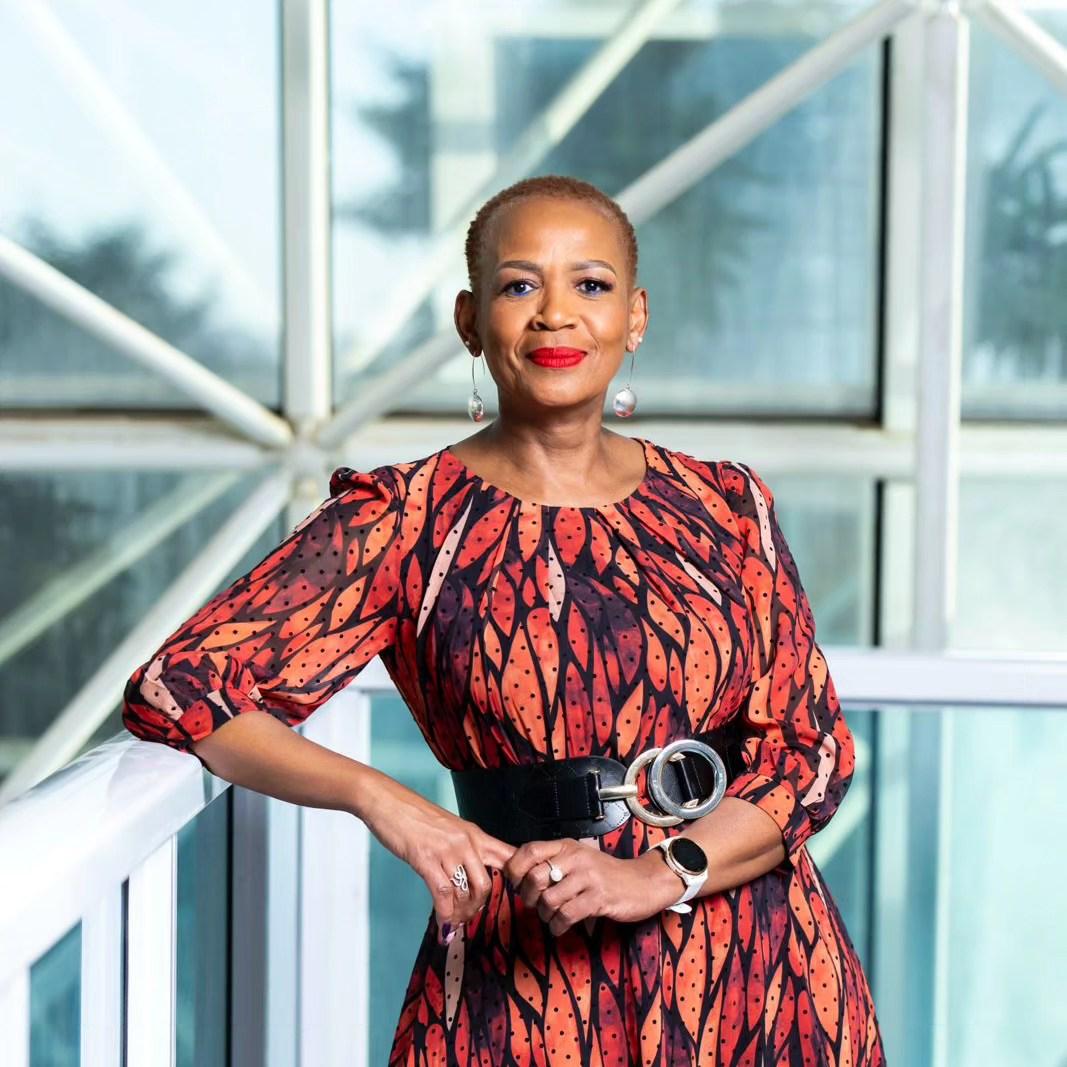The Minister of Higher Education, Prince Maele, has officially launched the 2025–2026 tertiary education sponsorship cycle, offering renewed hope to thousands of aspiring students across Botswana seeking government financial assistance for higher learning.
Speaking during a press briefing on Monday afternoon, Minister Maele stated that for the current sponsorship cycle, the Department of Tertiary Education Financing(DTEF) will sponsor a total of 12 034 students. Maele said the cut-off points will remain at 36 points. He further stated that there will be no re-sponsorship for this financial year, adding that only 50 students will benefit from the progression sponsorship.
Additionally, Maele reiterated the government’s commitment to increasing brigades and technical colleges’ allowances from P300 to P1900, effective from August 2025. However, he noted that due to fiscal constraints, the government will be unable to increase students’ allowances to P2500. Even so, the government has maintained its desire to fully increase the allowances pending the improvement of its fiscal performance.
Moreover, Maele reaffirmed the government’s commitment to promoting inclusive access to education, emphasising that tertiary sponsorship remains a cornerstone of Botswana’s national development and human capital strategy.
“Education is the foundation of our knowledge economy. This sponsorship cycle is more than funding — it’s an investment in the future of Botswana,” Maele said.
The sponsorship program, facilitated by the Department of Tertiary Education Financing (DTEF), will enable qualifying Batswana to pursue studies at both local and accredited international institutions. The application period is expected to open in the coming weeks, with specific deadlines and eligibility criteria to be outlined by the Ministry.
What to Expect?
Students intending to apply are encouraged to begin preparing their documentation, which typically includes: Certified academic transcripts, Admission letters from recognised institutions, Proof of identity, Motivation letters or program-specific requirements.
Minister Maele hinted at reforms in the allocation process to ensure greater transparency, efficiency, and alignment with labour market needs. “We are prioritising fields critical to national development such as engineering, ICT, agriculture, education, and health sciences,” he noted.
In line with Botswana’s digital transformation agenda, the application process is expected to be fully online, with support services provided through regional education offices and tertiary institutions. The Ministry is also working with stakeholders to ensure that students in rural areas are not disadvantaged due to digital access limitations.
As the nation’s youth await further directives, the Ministry has assured the public that comprehensive guidelines will be released soon via official channels.



